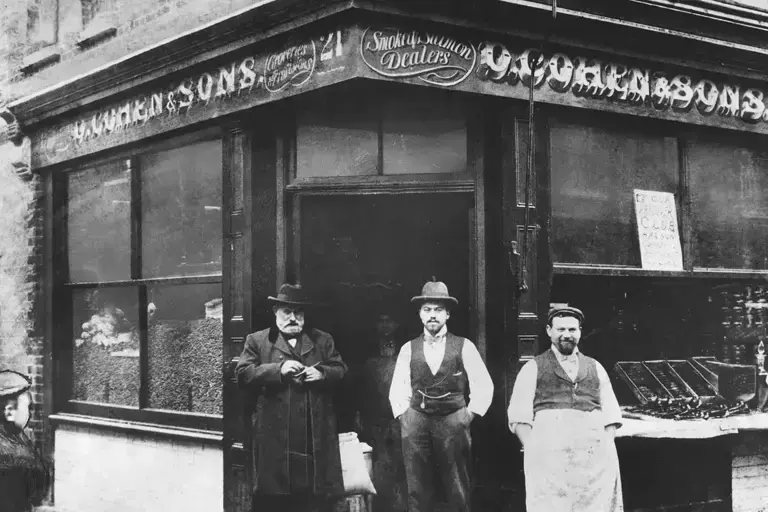The language of today's immigration debates feels eerily familiar. Accusations of "swamping," "invaders," and "unassimilable" populations are heard from some politicians and commentators, yet this rhetoric is far from new. Over a century ago, these same fears were weaponized against a different group of people: Jewish refugees fleeing violence in Eastern Europe.
In 1903, Tory MP William Evans-Gordon railed against Jewish families, claiming they were "ruthlessly turned out" English residents and formed a "permanently distinct block." His words, published in his book The Alien Immigrant, described them as an "army of locusts" and accused them of bringing "colonies of foreign crime." Evans-Gordon's campaign led to the 1905 Aliens Act, a law designed to restrict Jewish immigration.
Today, history has proven Evans-Gordon's fears to be unfounded. The Jewish community not only integrated but also became an integral part of British society, enriching its culture and contributing significantly to every aspect of life, from arts and science to business and politics. The very idea of a "Judeo-Christian" tradition, now a common term to describe Western values, was a concept developed in the 20th century to unite people against a common enemy—Nazism and Soviet atheism—and it explicitly included a community that was previously seen as an outsider.
The reality is that cultures are not static. They are dynamic, porous, and constantly evolving. As historian Kenan Malik notes, the social views of many conservative Muslims today would have been much closer to the British mainstream of the 1970s than to the current, more liberal consensus. The "Judeo-Christian" concept, for example, emerged as a political tool to define who "belonged," first to fight fascism and then communism, and now sometimes used to exclude Muslims. This historical context reveals how such definitions are often fluid and politically motivated.
The narrative that immigrants take jobs and resources from native-born workers is also a recurring theme. Evans-Gordon argued that Jewish refugees were the cause of material deprivation for British workers. However, the true root cause was not immigration, but exploitative landlords, unscrupulous employers, and a lack of social safety nets. The solution was found not in restricting immigration but in collective action. Jewish workers, particularly in East London, became a vital part of the trade union movement, working alongside their English counterparts to fight for better working conditions and fairer wages.
This history offers a powerful lesson. The challenges we face today—from housing shortages to economic insecurity—are not caused by the people seeking refuge but by systemic issues that require systemic solutions. By echoing the xenophobic rhetoric of the past, we risk repeating its mistakes. Instead, we should remember the legacy of those who fought for a more inclusive and just society and recognize the shared humanity and potential for solidarity that newcomers bring. Just as the Jewish community of the past enriched Britain, so too will today's immigrants, if we choose to focus on building a future together rather than repeating the prejudices of the past.







.svg)

